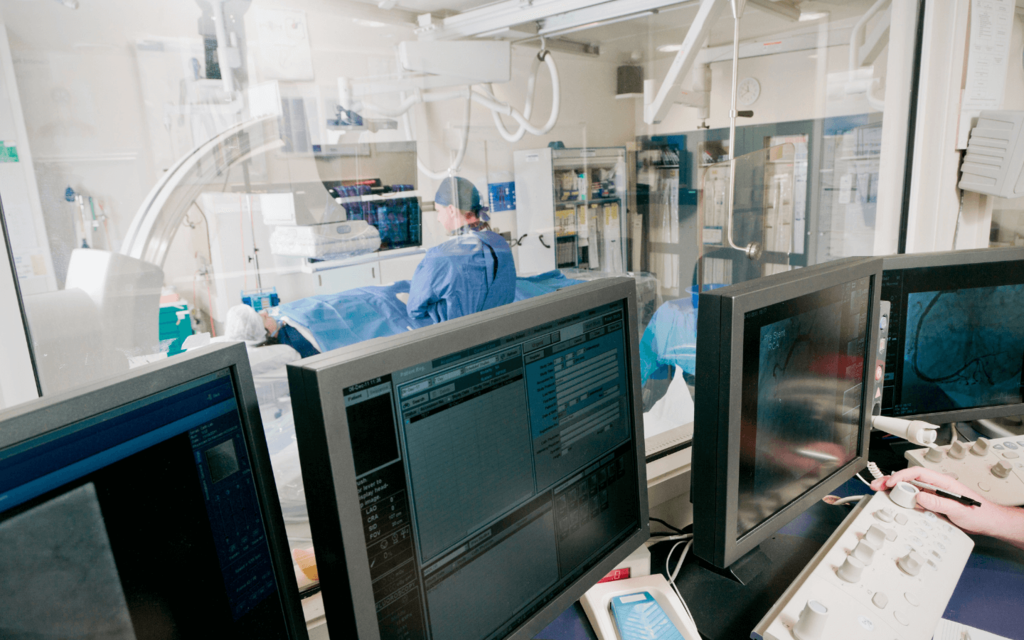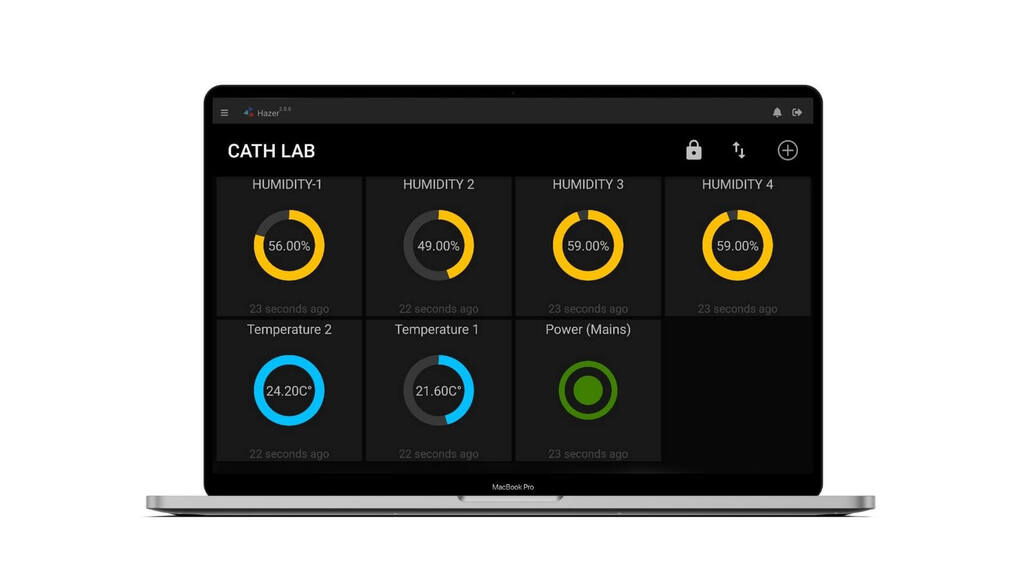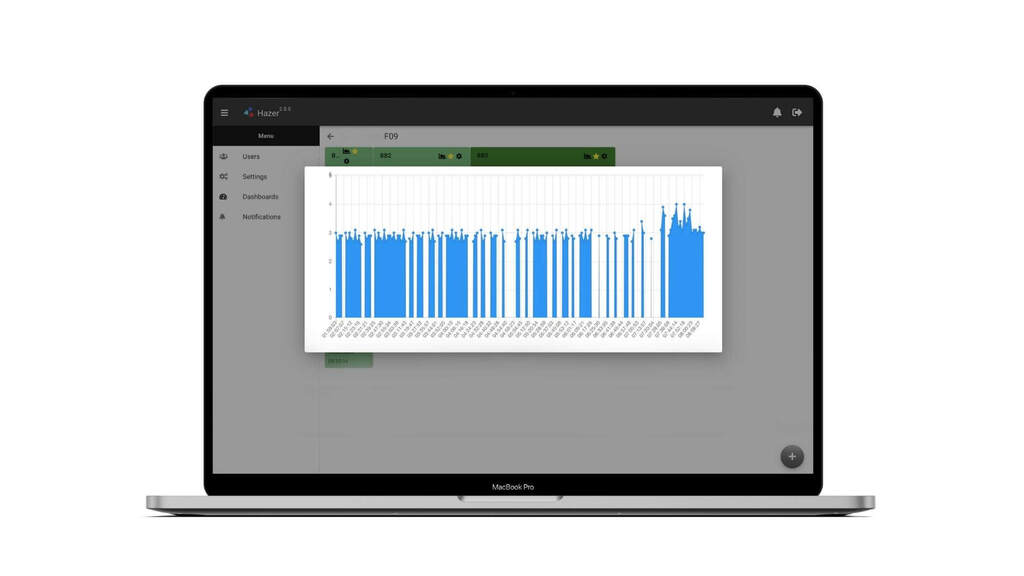COVID-19 showed us how important the healthcare system is. The lack of doctors, shortage of drugs, and faulty medical equipment can cost people lives. The world can mitigate the issue by introducing smart healthcare systems. Today, we showcase a smart hospital that implemented IoT to keep its cath lab operational.
We’ve already written about IoT and telematics solutions controlling pharmaceuticals’ storage and transportation and managing nurses in hospitals. Now let’s see how to prevent breakdowns and prolong the lifetime of expensive medical equipment.
The problems of a smart hospital
After the COVID pandemic, one may think that artificial lung ventilation (AVL) units should have been our focus. But let’s not forget that coronary heart disease accounts for 22,64% of total deaths in the country. That’s why in this article, we focus on the remote management of heart diagnostics equipment.

The problems of a smart hospital
Sensitive equipment
One of the well-known private hospitals in South Asia founded a catheterization lab to treat patients with heart failure. The installed diagnostics imaging equipment is the most expensive in South Asia and is sensitive to temperature and humidity variations.
Another thing is the warranty. If an apparatus breaks down, the hospital needs to prove that it worked under labeled conditions – 40-60% humidity at 20-25 ℃. Otherwise, the warranty is not applied, and the hospital will repair the equipment at its own expense.
Time constraints
The hospital has a continuous patient flow. For some of them, even a day’s delay may be critical. That’s why temperature and humidity monitoring equipment should be installed fast, without dust and debris.
The solution
Hardware
To avoid drilling holes and wiring the lab, KLOUDIP created an environment control system based on wireless temperature and humidity sensors. Wireless sensor mounting demands hours instead of days, so the hospital didn’t need to close the cath lab and reschedule appointments with patients.
Software
KLOUDIP developed a service that receives data from the environmental sensors and displays it on the dashboard or reports.
The dashboard based on HAZER shows all sensors from the lab and their values updated in real-time. It’s available on any laptop and smartphone connected to the Internet.

The reports show temperature and humidity levels throughout the day in the form of colored graphs. Until the environmental conditions are within the normal range, the line is green. Otherwise, it turns red. That makes the problem evident without studying the report in detail.

The result
The hospital managers can now control their equipment and facilities even from the jungle if they bring a mobile phone. It became as simple as checking electricity counters or home thermometers. At the same time, it saves million-dollar equipment from breaking down.
It started with a private smart hospital, but there’s no reason why state healthcare institutions can’t use it. The budgets are always not enough, which means savings = earnings.
If you work with sensitive equipment or machinery, we’ll consult you on managing it cost-effectively. Ask us here.




